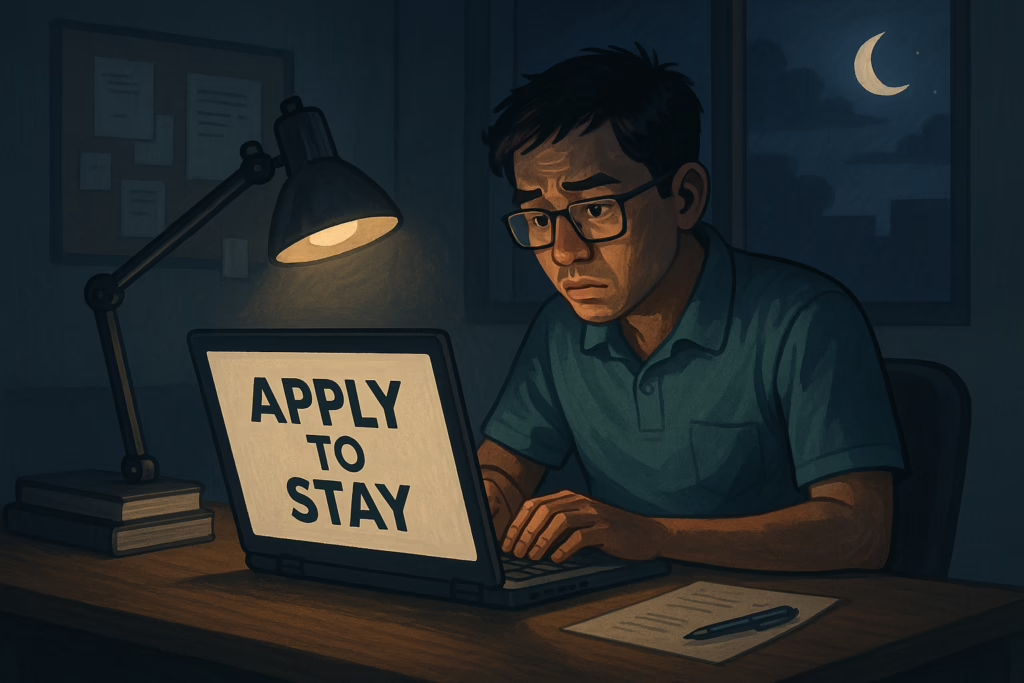
Apply To Stay
Recently I stumbled across a Tiktok video from “Game of Impossible”. For those uninitiated this is a podcast by Idris Jala and his son. Its gist was simple: every three years, apply for a new job—not to leave, but to test your market value.
Corporate folk call that savvy. Teachers, though, will be at odds. “nak lompat ke mana? Nak tukar kerja apa?” Yet I believe that it is something that can be applied by teachers as well.
1 · Value Check
A few years ago I threw my name into the Guru Cemerlang selection. Spoiler: I didn’t get it. But the experience and the build up to it was enlightening to say the least. I know my teaching can use a new tool or two, my portfolio was messy, my filings? speechless. But how many people can say that a nazir from another state came just to check on your teaching skills.
Because I’d “applied to stay,” I suddenly saw the gaps in my craft. The next year I revamped my filing system, learnt new skills for myself, organised my portfolio. Had I not applied, I’d still be squinting at the same blind spots. All because I applied and got shortlisted.
Take‑away: Even if the panel never short‑lists you, the preparation will improve your teaching.
2 · Collect Options, Not Scars
An application (or two) in your pocket changes your posture in the staff room. You volunteer to test the new blended‑learning module, you pitch a cross‑district scrabble tournament, you try different teaching styles—because you are no longer afraid to try new things, you know your worth. You dare to be bold.
There are many ways to build on those options. You can go down the Guru Cemerlang route. Apply for scholarships such as Fulbright Scholarship or even the Korean Exchange program. Interested in becoming Digital Education enthusiast? can always go for microcredentials such as Google Certified Trainer & Apple Learning Coach.
Each application widens your network and reminds you that your skills travel beyond the four walls of your classroom..
3 · Stay Humbled, Stay Hungry
Nothing quiets an ego like radio silence after uploading your CV. If no one calls back, treat it as diagnostic data, not defeat. Maybe your skills didn’t translate into measurable outcomes; maybe your statement lacked a crisp narrative. Good—now you know what to iterate before the next round.
Likewise, if offers arrive, celebrate—but note the patterns. Do they all spotlight your teaching skills while ignoring your leadership potential? That’s feedback too.
A Three‑Year Teacher Growth Cycle
Year 1: Explore – Choose a programme that scares you a little. Join.
Year 2: Sharpen – Act on the feedback, document evidence, mentor a colleague.
Year 3: Apply – Update your portfolio, sit for that interview, reflect on the result.
Then hit repeat. It’s professional periodisation—like athletes cycling through build, peak, and recovery phases, only our “muscles” are pedagogical.
Loyalty Redefined
This habit isn’t about disloyalty to your school. (Not that you are trying to change job) It’s about loyalty to your craft and, by extension, to your students. A teacher who knows their worth, holds options, and keeps a learner’s heart brings fresher energy to the lesson than one who feels stuck.
So set a reminder: three years from tonight, apply for something scary.
Draft that application—Guru Cemerlang, NPQEL, Fulbright, anything. Even if the only line you ever cross is the “Submit” button, you’ll return to class sharper, humbler, and freer. You will grow.
And that’s all folks